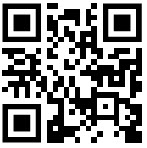The past six months have witnessed an unprecedented technological phenomenon that has the potential to revolutionize most professions. Education is now challenged with developing innovative teaching and assessment strategies. As well, stakeholders in education will need to adjust to the deepened pressures that AI tools pose for plagiarism and misinformation. Weekly, waves of new and reinvigorated AI powered tools are being touted continuously through social media and education sources. Active curation and training will be required to sort these out. This will include revising institutional policies and codes of ethics.
As some educators are over the shock and fear stage of this disruption, they are now looking for guidance on how these technologies can be used to enhance teaching and learning. Applying digital citizenship principles to map out practical activities is one approach that may assist educators in successfully integrating AI chat tools into their lessons.
What is digital citizenship?
Digital citizenship emerged in the 1990s as a response to the rising popularity of digital technologies and the visual Internet. Initially, it encompassed the understanding of personal rights and organizational responsibilities, as well as ethical considerations when using digital technologies. From 2000 onwards, digital citizenship evolved as educators recognized the importance of promoting responsible and ethical behavior in online spaces, as well as encouraging a sense of community and digital literacy. Refinements included online privacy, cyberbullying deterrence, responsible internet use, media literacy, digital footprints, using your digital voice on important issues and the impact of digital technologies on society and individuals. At this time, there are a variety of definitions of digital citizenship. Take a few minutes to Google, “What is digital citizenship?”, and you will see what I mean. However, essential elements of educational digital citizenship commonly include the following attributes:
- Digital Literacy
- Digital Etiquette
- Copyright & Intellectual Property
- Plagiarism
- Digital Rights and Responsibilities
- Online Safety
- Digital Footprint and Reputation
- Digital Well-being
ISTE’s Digital Citizenship Standard
The International Society for Technology in Education or ISTE, is a not-for-profit organization that promotes the use of technology in education. One of its focal points is setting educational technology standards and certifying members with these standards. One such standards is digital citizenship. This standard ensures that educators integrate digital citizenship principles into their professional practice.
Each standard has competency performance indicators that are offered to educators as targets to ensure that their learners meet expectations in the digital age. These are the four digital citizenship performance indicators.
- Create experiences for learners to make positive, social, responsible contributions and exhibit empathetic behavior online to build relationships and community.
- Establish a learning culture that promotes curiosity and critical examination of online resources and fosters digital literacy and media fluency.
- Mentor students in safe, legal and ethical practices with digital tools and the protection of intellectual rights and property.
- Model and promote management of personal data and digital identity and protect student data privacy.
I propose that the digital citizenship performance indicators can be mapped to practical activity concepts in assisting educators to integrate AI chat tools into their lessons. As this is a short blog post, I invited ChatGPT to assist me with this mapping process. Oh, yes, I did!
Possible Strategies and Activities (Generated with Chat GPT)
I decided to work with ChatGPT to produce an ample list of strategies and activity ideas connecting digital citizenship performance indicators and AI chat tool features. This cooperation between a human and an AI tool has produced a list that I edited and have shared with this community. Is this ethical? Probably not, but it provides us with one starting point to meet the challenges of AI in education. Teachers can choose which one to focus on and expand them into a full in-class activity.
You can access this list by scanning the QR code or going to this link https://tinyurl.com/ckttwe9t.
Example
There are too many ideas to detail in this post. This is the idea for the first digital citizenship performance indicator.
Indicator: Create experiences for learners to make positive, social, responsible contributions and exhibit empathetic behavior online that build relationships and community.
Idea: Engage in real-world problem-solving: Encourage students to apply their AI knowledge and skills to solve real-world problems or address community issues. Challenge them to develop AI-based solutions that have a positive social impact. Guide them to consider the ethical implications and consequences of their solutions.
This is a starting point for us to expand and develop learning objects, lessons or modules. The process of building these will take time, energy and hopefully, coordination.
Final Thoughts
In 2023, the challenges posed by pervasive and powerful artificial intelligence technologies forces us to look for ways to adapt our practices to harness and exploit AI technologies rather than fear and fight them. ISTE’s digital citizenship standard may provide us with practical learning ideas that will empower and protect our learners. All are welcome to explore the List of ideas. If you have comments, please post them at the bottom of this screen.
Resources
ISTE, https://www.iste.org
ISTE Standards, https://www.iste.org/iste-standards
ISTE Digital Citizenship in education, https://www.iste.org/areas-of-focus/digital-citizenship
ISTE Educator Standards, 2.3 Citizen. (Retrieved on: June 1, 2023). https://www.iste.org/standards/iste-standards-for-teachers
Digital Citizenship Ideas to Meet the Challenge of AI in the Classroom. https://tinyurl.com/ckttwe9t


One thought on “Digital Citizenship and the Challenge of AI ”